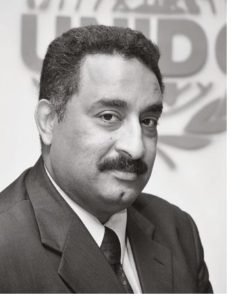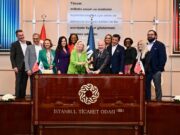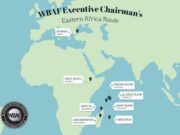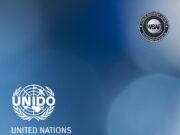 UNIDO-ITPO Bahrain Head, Dr Hashim S Hussein explains
UNIDO-ITPO Bahrain Head, Dr Hashim S Hussein explains
how his organisation plans to help produce the world’s next generation
of high-impact entrepreneurs.
The UNIDO ITPO Bahrain Office was established in 1996 to enhance industrial partnerships and cooperation – between enterprises in the Kingdom and other nations – by facilitating the mobilisation of foreign and domestic investments.
As industries throughout the world confront the growing challenges of international competition, investment and technology are proving two essential components to success in the global market. However, many developing nations and countries with economies in transition face enormous difficulties in attracting investors, and are challenged in gaining access to technology and markets.
Through the UNIDO ITPO Network of 8 countries (Bahrain, China, Italy, Japan, Korea, Nigeria, and the Russian Federation), ITPO Bahrain provides a wide spectrum of services to Investors/Entrepreneurs – ranging from Business Counseling to the setting up of joint ventures. In so doing, ITPO Bahrain provides a unique combination of value-add services to client institutions and entrepreneurs who want to forge new alliances in the international industrial investment and technology transfer.
Drawing on these links, ITPO Bahrain is redressing the industrial development imbalance by animating investment and routing the latest technology to Bahrain. At the same time, the ITPO is opening up new opportunities for investors and technology suppliers to find potential partners, by providing services tailored to each step of the investment life-cycle; namely: opportunity identification, preparation, appraisal, validation, and implementation.
The promotion of foreign direct investments and its positive correlation to domestic investment – coupled with a growing youth population, both locally and globally – represents a major challenge for governments to create desperately needed jobs. As a result, ITPO Bahrain and the Bahrain Government have resolved to explore initiatives, programmes, and methodologies that represent potential solutions to this challenge. This has been done by looking at best practices available for the Ministries of SMEs and Entrepreneurship Development in three countries; namely: Italy, Turkey, and India. In 2001, under the banner of South-South Cooperation, the Bahraini and Indian Governments, and in affiliation with UNIDO, established the Arab Regional Center for Entrepreneurship & Investment Training (ARCEIT) under ITPO Bahrain. From the inception of ARCEIT in 2001, it was immediately evident that entrepreneurial development was a key factor in addressing job creation and economic sustainability for the prosperity of nations. Hence, ARCEIT initiated and embarked on the development of what is known today as the Bahrain Model for Enterprise Development & Investment Promotion Programme (EDIP), which has undergone a continuous evolutionary process of advancement and progress.
“It is the well-supported
entrepreneur that
holds the key to shaping
their society.”
The EDIP takes a holistic approach of integrating financial and non-financial services to stimulate prospective entrepreneurs in transforming their business ideas and dreams into existing businesses; taking up a mandate of new enterprise creation. EDIP’s mandate DR HASHIM S HUSSEIN Head, The United Nations Industrial Development Organization – ITPO, UNIDO also extends to serving as an enterprise development mechanism, assisting existing businesses to grow by providing added value services at different stages of the project life cycle.
The EDIP model is a comprehensively structured Incubation System which encompasses pre-incubation, incubation, and post-incubation services. Among which, one can expect to find preparation and empowerment; business counseling; and technology tie-ups leading to joint ventures; financial linkages; virtual and in-house incubation; and finally, growth programmes.
Today, the EDIP Programme has become an international model, by developing the capacities of 4,500 experts from 60 countries; and by doing so, has touched the lives of millions of entrepreneurs around the world. These achievements have led to the transformation of ARCEIT from a regional center in 2013, to the Arab International Center for Entrepreneurship & Investment in 2018.
With the global adoption of the 2030 Agenda for Sustainable Development, which includes a set of 17 Sustainable Development Goals (SDGs), it is evident that a key underlying component to achieving the SDGs is entrepreneurship. It is the entrepreneur who can autonomously achieve economic upliftment for themselves and their families. It is the entrepreneur who can create an impact with a positive multiplier effect on their community. It is the well-supported entrepreneur that holds to the key to shaping their society; to injecting their economy.



























